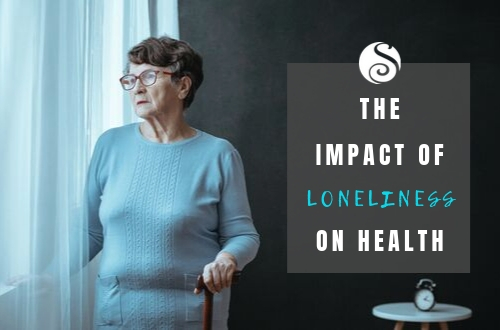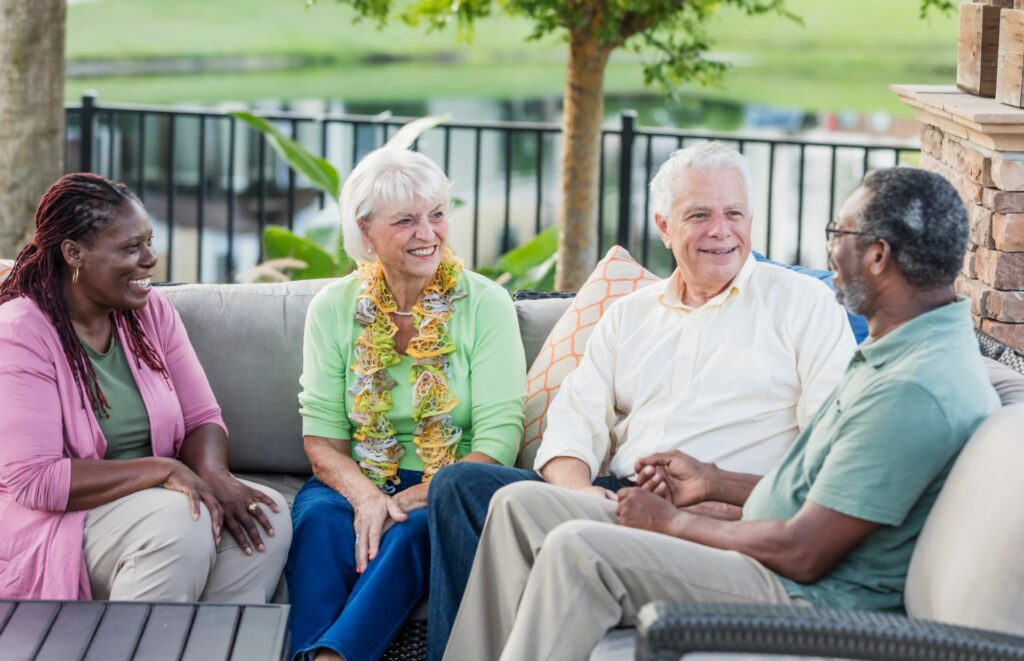 In Florida, more than 1.2 million seniors live by themselves, according to the State of Florida Department of Elder Affairs. While some of these Florida seniors have a robust social and family life, many don’t.
In Florida, more than 1.2 million seniors live by themselves, according to the State of Florida Department of Elder Affairs. While some of these Florida seniors have a robust social and family life, many don’t.
Around the state — and even the world — researchers are seeing an increased correlation between getting older and experiencing symptoms of loneliness and social isolation. In France and the United Kingdom, researchers have launched campaigns to raise awareness of this growing trend, while U.S. scientists are diving into the research to see exactly how loneliness affects older adults’ physical and mental health.
Is Your Loved One at Risk of Becoming Socially Isolated?
A Journal of Primary Prevention review of articles published in medical outlets like PsycINFO and Medline shows an alarming amount of evidence that seniors living alone are at an increased risk of developing many chronic diseases and illnesses.
Studies by the U.S. Department of Health and Human Services’ National Institute on Aging show that social isolation and loneliness can increase one’s chances of developing mental and physical issues including heart disease, diabetes, high blood pressure and obesity. Loneliness has also been tied to an increased risk of anxiety, depression, cognitive decline and even Alzheimer’s disease.
The Cacioppo Evolutionary Theory of Loneliness, a novel study into how social interaction affects our health, suggests that the behavioral and biological consequences of loneliness increase the risk of death in people of all ages.
The Biological Impact of Loneliness
Part of the reason loneliness affects our health is because it changes our perception of the world, says Steve Cole, Ph.D., director of the Social Genomics Core Laboratory at the University of California, Los Angeles.
Cole’s research suggests that chronic loneliness puts our body on the defensive at a biological level. We’re more likely to feel threatened and distrustful of those around us.
This may promote inflammation, which, over an extended period of time, can increase our risk of developing a chronic disease. Loneliness may also weaken our immune systems, putting us at increased risk of getting sick.
Quiz: Is Your Loved One Lonely?
If your parent or another loved one over the age of 70 lives alone, take this short quiz to better understand their risk of becoming socially isolated.
- Does your parent belong to a house of worship?
- Does your parent belong to a social club or senior center?
- Does your parent have friends they speak to regularly?
- Does your parent drive?
- Does your parent exercise?
- Does your parent volunteer for a school, charity or other organization?
- Does your parent engage in hobbies that interest them such as crafts or woodworking?
- Can your parent walk up and down stairs without assistance?
- Has your parent made plans to see friends in the past three months?
- Do you visit your parent at least once a week?
If you answered “no” to five or more questions, your parent may be more susceptible to feelings of loneliness and associated chronic health issues.
Fixing the Problem
 In the past, many seniors moved in with their children or grandchildren as their health and mobility declined. But the reduction in multi-generational households means more and more seniors are living alone.
In the past, many seniors moved in with their children or grandchildren as their health and mobility declined. But the reduction in multi-generational households means more and more seniors are living alone.
That’s why many older adults and their loved ones embrace the idea of making new friends and building camaraderie at a senior living community. Assisted living and independent living communities with robust social and activity calendars offer what Dr. Cole from UCLA’s Social Genomics Core Laboratory says is the secret to reducing feelings of loneliness: a sense of purpose.
His research has shown that helping others, volunteering and feeling like one’s life has meaning helps us feel more connected and leads to a healthier immune system.
An article in Psychology Today by Angela K. Troyer, Ph.D., C.Psych., goes on to list the many health benefits of an active social life, including:
- A longer lifespan, regardless of one’s current health
- Stronger immune system, especially in seniors
- Decreased symptoms of depression and improved overall mental well-being
- Lower risk of dementia
At Sonata Senior Living, our Florida communities offer residents a variety of lifestyle choices, including independent living, assisted living and memory care. All of our communities have robust social and activity calendars, encouraging our residents to make new friends, build stronger connections and feel like they’re part of something bigger than themselves.
For more information, call a community near you today to schedule a visit →
